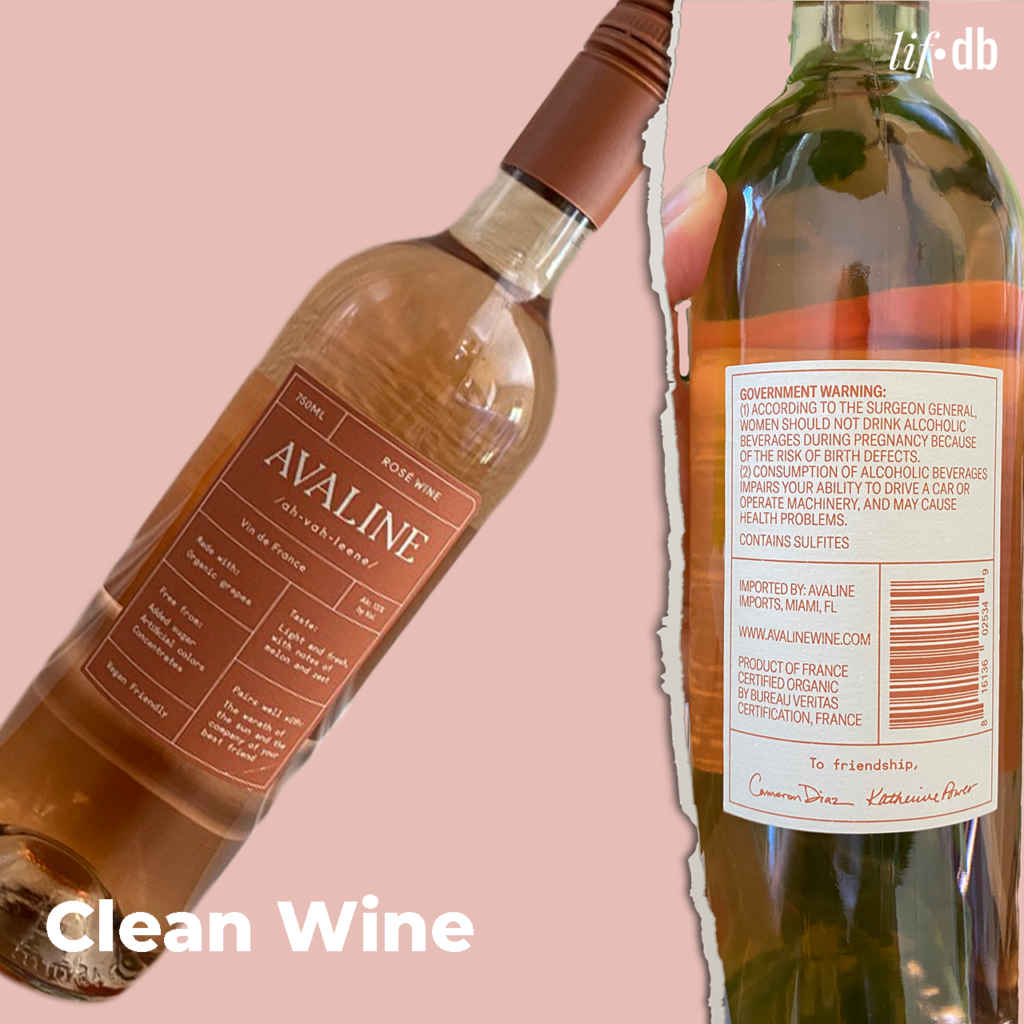A part of the wellness industry and transparency movement, the concept of clean wine attempts to take a habit that can lead to health problems (drinking alcohol) and make us feel less guilty about partaking in it.
To Your Health
The selling points or buzz words/phrases for making wine good for you include:
- organic grapes
- vegan*
- no artificial colors and flavors
- minimal intervention
Private labels* marketed as clean wines include Good Clean Wine and Avaline, co-founded by actress Cameron Diaz.
To Being Transparent
In terms of transparency, current guidelines do not require wine brands to list ingredients. Clean wine brands, on the other hand, want their consumers to know exactly what’s in their wines. The problem is that they don’t list their ingredients on the bottle, much like conventional wines.
What we do know is that Avaline, imports its whites from Spain and rosés from France, but we don’t really know much about the winery or the complete list of ingredients from the packaging. The company does make it a point to provide a list of their added ingredients on their website, which helps.

Why No label?
Unlike the industrial process of making energy drinks for example, wine making requires “changing the recipe for each vintage”, so it’s not your standard operating procedure.
Whether or not you think clean wines offer a good marketing angle, or believe that they provide a credible healthier wine alternative, one thing is for sure. Consumer demand for transparency is already leading to some changes in the wine industry:
Dr. Ignacio Sanchez Recarte, Secretary General of CEEV expects that by the end of 2020, there will be labels, which will list ingredients, but probably not processing aids or pesticides used.
Dr. Ignacio Sanchez Recarte | Secretary General of the Comité Européen des Entreprises Vin
When it comes to wine in the US, women make up 2/3 of high frequency drinkers—these are women who drink wine more than once a week.
At the end of the day, if you can feel good, relaxed, and happy without alcohol, you probably don’t need to drink—period. But if you do drink and want to find ways to make your habits less harmful for the body and the environment, clean wines sound promising. Goes without saying, however, that clean wines have nothing on celery juice.
The More You Know
How can wine not be vegan?
Some conventional wines can use animal products for fining wine.
Popular animal-derived fining agents used in the production of wine include blood and bone marrow, casein (milk protein), chitin (fiber from crustacean shells), egg albumen (derived from egg whites), fish oil, gelatin (protein from boiling animal parts), and isinglass (gelatin from fish bladder membranes).
Peta
*Private labels have no vineyards or wineries to maintain.
